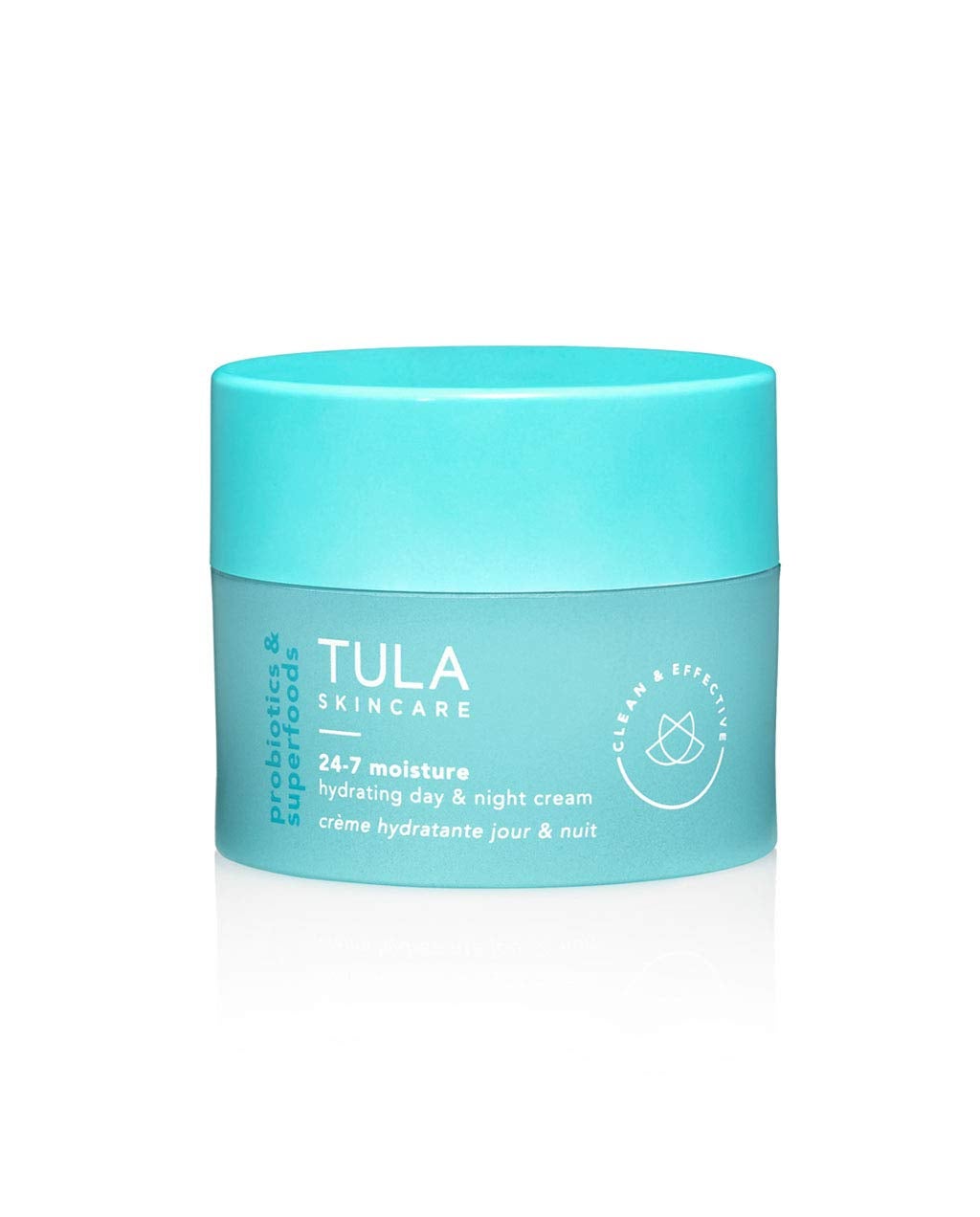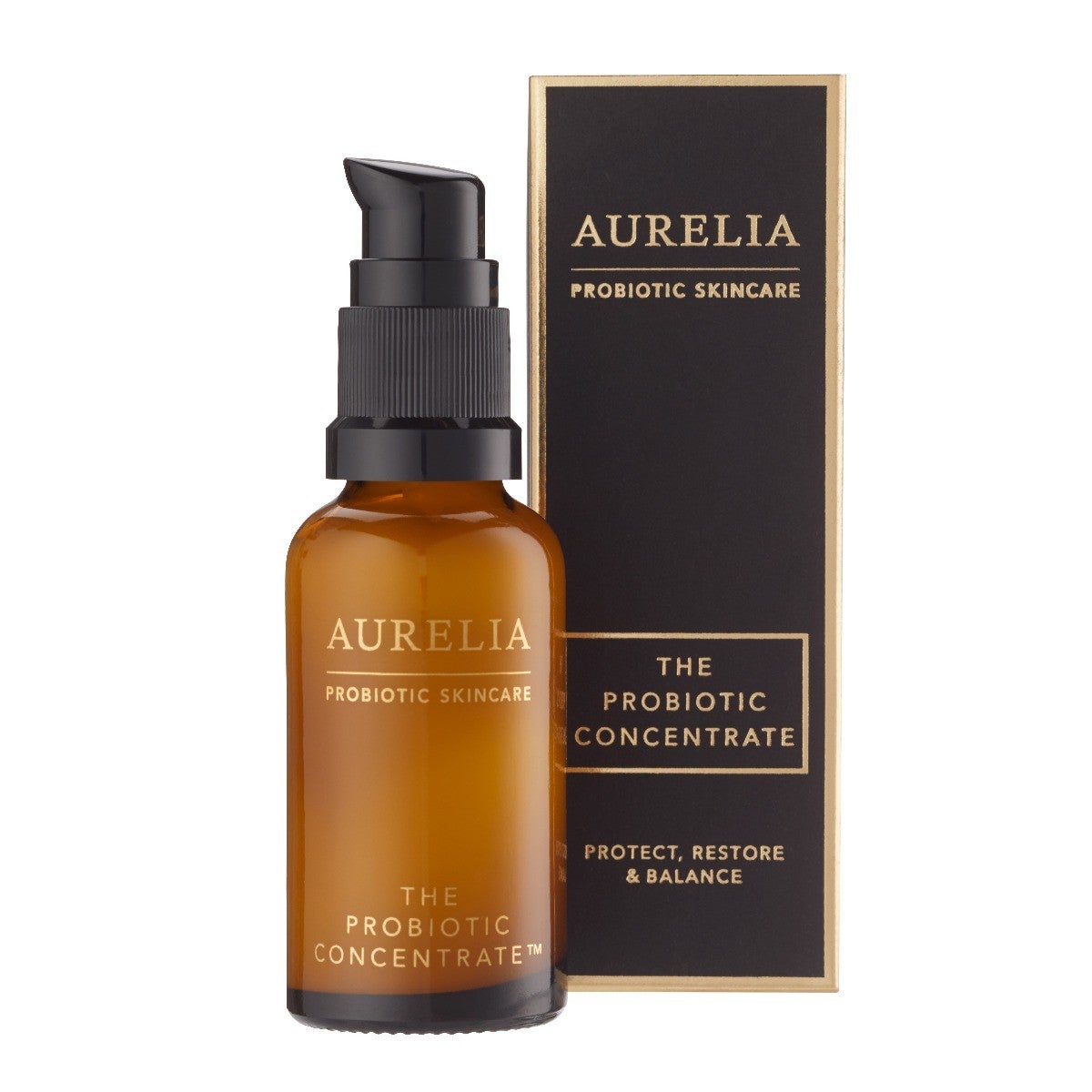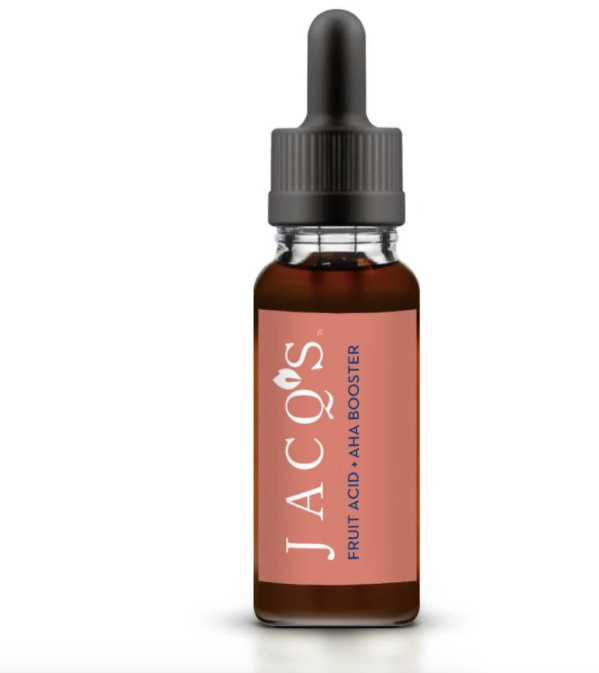Could Probiotic Skin Care Solve Your Maskne Woes?
Photo: Edward Berthelot/Getty Images.
When your skin is acting up, you tend to blame the most obvious culprit — which, in the year 2021, is your face mask.
While the once-novel maskne has grown into a commonplace buzzword, it's helpful to remember that mandated face coverings are not solely responsible for whatever skin concerns you're currently facing. Yes, you're covering your skin with a piece of cloth every time you leave your house, but there's more going on: You could be dehydrated, overtired, dealing with a change in weather or routine, or stressed out... or any combination thereof.
You don't necessarily need a Zoom call with your derm to determine the singular root cause of your pimples, rosacea, and blackhead congestion — because there's likely a slew of contributing factors — but there's one potential solution that you may be sleeping on: probiotics.
AdvertisementADVERTISEMENT
First, it's important to have a baseline understanding of probiotics and how they function on the skin. "Our skin is home to millions of bacteria, fungi, and viruses that comprise its microbiota," explains dermatologist Hadley King, MD. "The microbes on the skin impact the way it looks and feels, and its ability to serve as a barrier between your body and the outside world. A healthy, balanced microbiome will act as a barrier to allergens and environmental toxins, and manage the skin's inflammatory response."
Because the microbiome exists at a cellular level, it can be difficult to know when there's a bacterial imbalance, but it can happen pretty easily. "Sometimes products like retinoids and benzoyl peroxide can actually imbalance our skin's pH and throw off the microbiome," says licensed esthetician Andrea McCollough. "Then things like stress, chronic inflammation — and now, the heat of your breath under a mask — can also impact our skin's microbiome and its functionality."
So, really, if you have any kind of inflammatory skin response like rosacea, eczema, or acne, it may be a red flag that there's something off with your skin's microbiome. "When the microbial balance is disturbed, you may not see a noticeable difference at first," says Dr. King. "But the microbiome will function less effectively over time, offering less support to the skin, which may increase the likelihood of inflammatory conditions like eczema and acne."
Here's where implementing topical probiotics may be something worth considering. "Early lab studies suggest that topical probiotics may regulate the skin's microbiome and restore barrier function," says Dr. King. "They will help strengthen the skin's natural ability to defend itself by forming a type of protective shield on the skin's surface. This makes the skin more resistant to damage from environmental stressors, and may be helpful for preventing maskne."
AdvertisementADVERTISEMENT
What's more, says Antonia Knox, brand manager of Aurelia Probiotic Skincare, there's really no downside to adding topical probiotics into your existing skin-care routine. "In my experience, probiotic skin care works for everyone," she says. "Even if you're not in the position to overhaul everything you're using, you can start with one product, like our Probiotic Concentrate, and insert it into your routine by mixing it with your facial oil, serum, or moisturizer." With a little bit of help from probiotics, your maskne flareups could all but disappear — and all you've done is simply boosted your skin's natural protective functions.
At Refinery29, we’re here to help you navigate this overwhelming world of stuff. All of our market picks are independently selected and curated by the editorial team. If you buy something we link to on our site, Refinery29 may earn commission.
AdvertisementADVERTISEMENT









